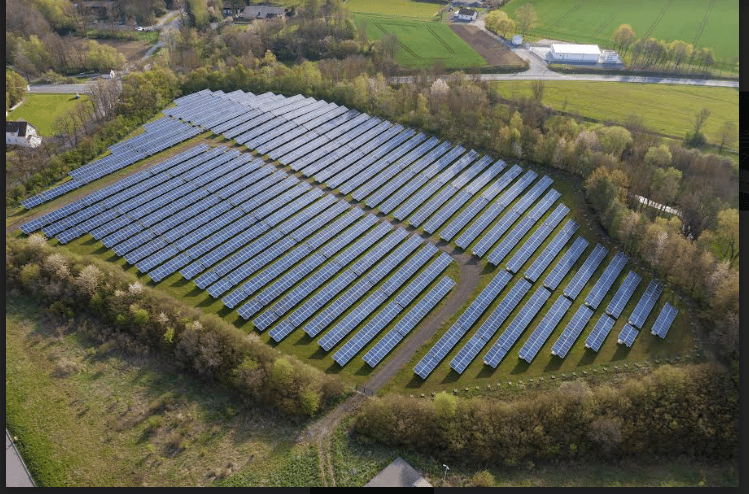Develop products that contribute to the reduction of vehicles CO2 emissions, by strengthening Valeo’s position in products used in the hybridization of vehicle systems

Terms of the action or commitment
Valeo’s strategic choice to design, develop and produce products and systems that contribute to the reduction of emissions has been validated by the market (the share of socially responsible investors has increased significantly and Valeo ranks first in the automotive sector in the 2015 Low Carbon 100 Europe index, launched by Euronext at COP21 in December 2015).
After inventing micro-hybrid (stop-start) technology, Valeo continues to reinforce this strategy for 2020, through :
– positioning itself as a leader in new sectors or technologies, mainly 48V mild hybrid technology, one of the key technological building blocks the desire to position itself as a leader in new sectors or technologies, mainly 48V mild hybrid technology, one of the key technological building blocks for the spread of affordable hybrid engines, for which Valeo is aiming for a leadership position by 2020
– and through various acquisitions and strategic partnerships, notably in high-voltage electric propulsion systems, resulting from the creation of of a joint venture between Valeo and Siemens in 2016. With this combination, the two companies intend to create a world leader in in high-voltage electric drive systems and components, covering all types of electric vehicles, including hybrids, plug-in hybrids and hybrids, plug-in hybrids and all-electric vehicles. Valeo’s commitment to this market is in line with the forecast of an average annual growth of 20% until 2020 in this specific market.
Levers mobilized for circular economy (according to Ademe)
Implementation timeline
Starting year
2016
Ending year
2020
Main actors mobilized
Internal actors
Risk and Environmental Insurance Department, Purchasing Department Department, Industrial Department, Sustainable Development and Public Affairs Department
External actors
Manufacturer customers (automotive), transport suppliers, waste waste reprocessing industry
Geographic area
The entire Valeo Group (30 countries of operation in the world, 134 sites)
Photo / Video
2022 follow-up of the action
Date of follow-up
22 avril 2022
Methods of validation of the follow-up
The monitoring of this commitment is made possible by the annual public publication of these indicators in the Group's reference document : https://www.valeo.com/wp-content/uploads/2022/04/valeo_deu_2021_fr.pdf
Status of the action
In progress
Completed
a) Results
Achieved
Partially achieved
Not achieved
Cancelled
Comparison with the projected pace in the last publications
Keeping up with the times
In advance
Delayed
For the year 2020, 60% of Valeo’s “original equipment” sales (i.e. sales to automaker customers) will come from products that contribute, directly or indirectly, to the reduction of CO2 emissions. Compared to the previous year, this share has increased by 5%, with these products representing 57% of sales in 2019.
In terms of products, Valeo’s strategy is structured around two axes: products that contribute to the reduction of CO2 emissions from vehicles (hybridization, electrification and energy saving) and technologies for the autonomous and connected vehicle.
More than half of Valeo’s annual sales since 2016 (an indicator that was not tracked before 2016) have come from products/solutions that contribute to reducing CO2 emissions (powertrain products for vehicle hybridization and electrification, innovative low-energy consumption auxiliaries – lighting and wiping – and thermal solutions linked to hybridization and electrification), to reach the value of 60% of sales by 2020. This strategy has been consolidated by major partnerships, such as the joint venture with Siemens in 2016, which gives Valeo a complete portfolio of low and high voltage electrification solutions for all types of vehicles.
Valeo has also strengthened its ability to offer electrification solutions for urban mobility use, notably with the 48V solution, which enables affordable electrification. It should be added that the electrification product portfolio covers both individual and shared vehicles, as well as four, three and two-wheelers, including bicycles.
Sales linked to autonomous, connected and digital mobility technologies are not included in this indicator, even though these products will eventually contribute to the reduction of CO2 emissions, through the effects they will have on the mobility system as a whole, such as traffic fluidity, reduction in the number of vehicles on the road, etc.
As Valeo is pursuing objectives in these two areas, it has decided not to set a numerical target for sales of products that contribute to the reduction of CO2 emissions in 2020.


